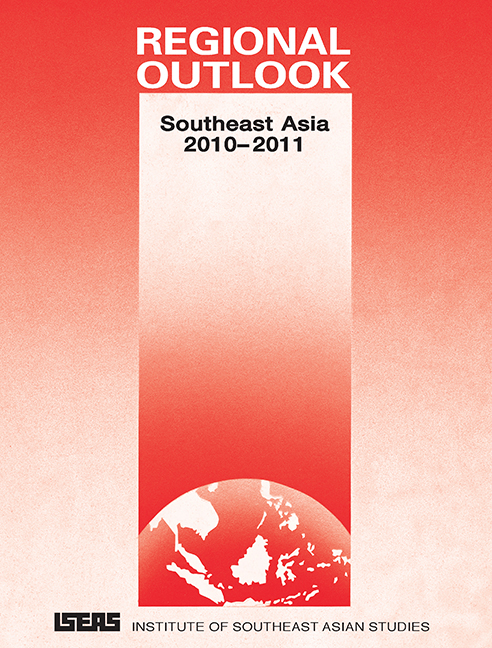Introduction
Published online by Cambridge University Press: 21 October 2015
Summary
It has grown common in recent decades to hear veteran journalists in Southeast Asia bemoan their editors' nearly exclusive interest in economic stories. These veterans chafe at the past quarter-century's focus on the region's successful economies, impressive rates of growth and maturing financial markets. They lament the passing of the era during which the region's absorbing political stories and the crises that typically defined those stories commanded most of their time and attention.
Thankfully, “politics” and “crisis” have long stopped serving as synonyms in Southeast Asia. Equally happily, the region's record of economic success looks likely to stretch into the future, important challenges notwithstanding. But, as Southeast Asia arrives at the end of the first decade of the twenty-first century, fundamental political questions have again become as central to developments in the region as during the three or four decades after 1945.
In many respects, there is reason to welcome the renewed centrality of politics in Southeast Asia. It points, first, to the region's success in putting the turmoil occasioned by the 1997 Asian Financial Crisis behind it, once and for all. Second, in some parts of the region at least, it may prefigure the ability of increasingly open, self-confident and competitive domestic political systems — rather than only technocratic- authoritarian dispensations — effectively to address issues of difficulty and moment without violence, instability or crisis. Among these issues, the promotion of sustained economic growth and the pursuit of social equity, regional integration and the threat of terrorism, human rights and freedom of expression, decisions about food and energy policy and the region's accommodation with an increasingly wealthy and assertive People's Republic of China (PRC) all rank high.
No case exemplifies the enhanced ability of an open domestic political system to confront these challenges so clearly as that of Southeast Asia's largest nation-state, the Republic of Indonesia. Its successful 2009 legislative and presidential elections have affirmed the promise initially dashed in its first decade of independence and later betrayed by the long New Order dictatorship of General Soeharto.
- Type
- Chapter
- Information
- Regional OutlookSoutheast Asia 2010-2011, pp. ix - xviPublisher: ISEAS–Yusof Ishak InstitutePrint publication year: 2010

